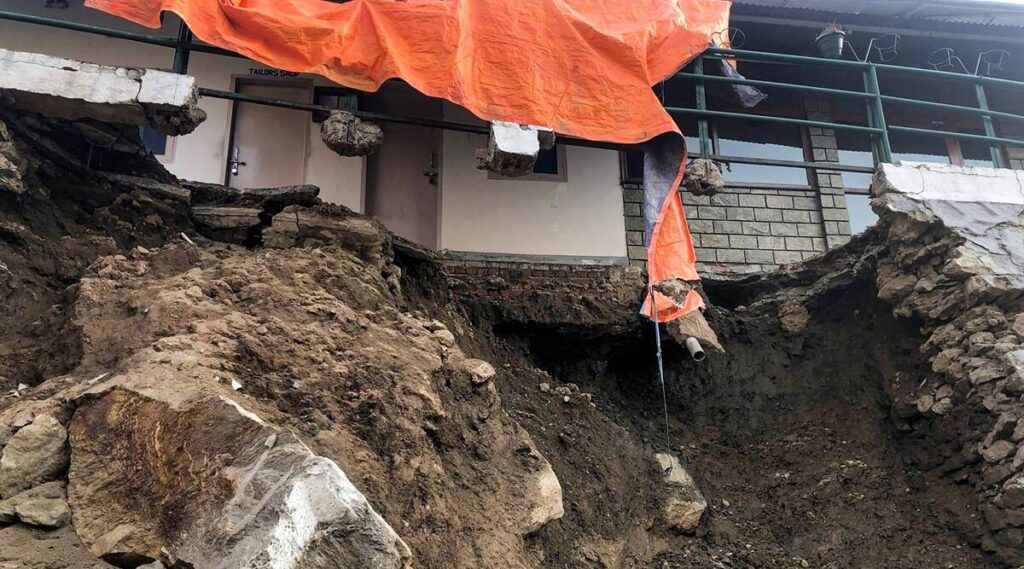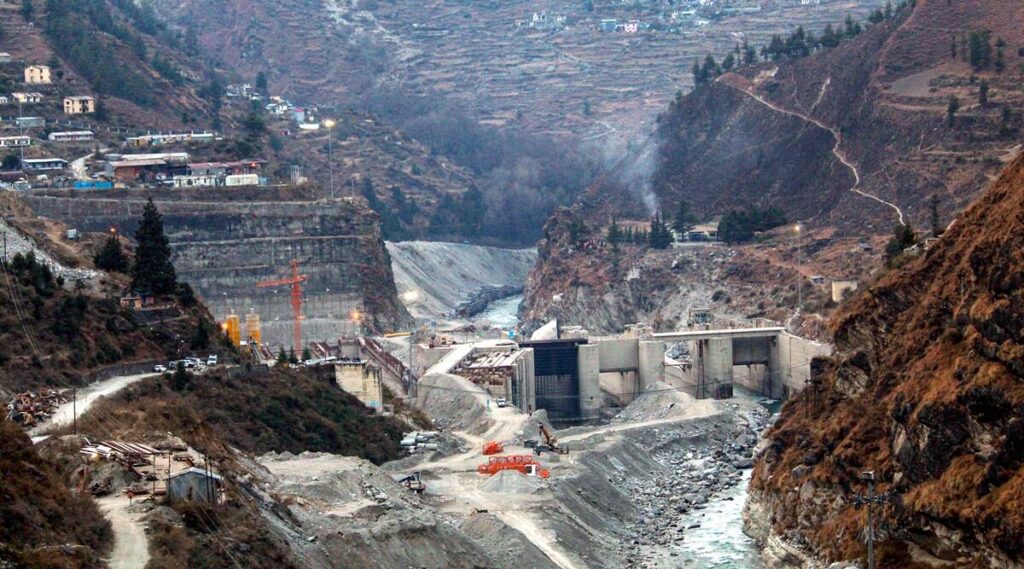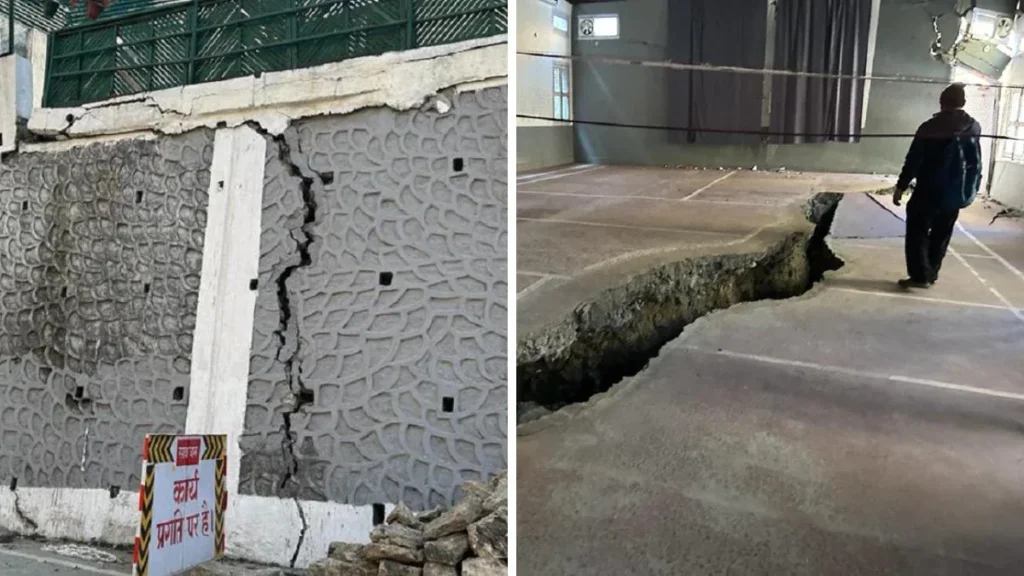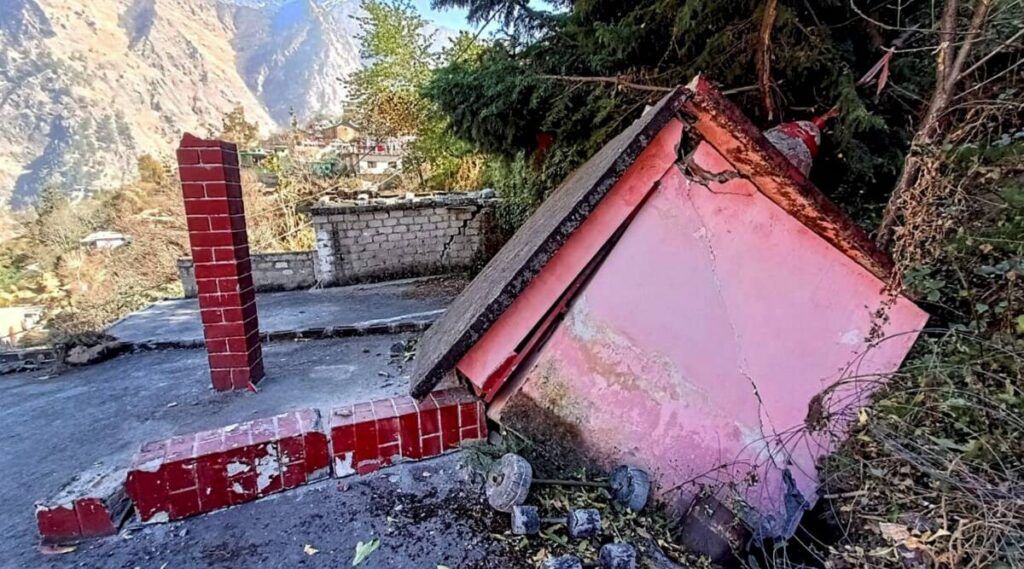
HEAVY CONSTRUCTION AND DISREGARD FOR SAFETY MEASURES
The recent landslides in Joshimath have highlighted the impact of heavy construction and the disregard for safety measures in the region. The Uttarakhand government has been implementing several developmental projects in the region, including hydropower and road projects, to promote economic growth and development in the region. However, the construction of these projects has led to severe environmental and social impacts, including the displacement of local communities, loss of forest cover, soil erosion, and destabilization of the local ecology.

ROLE OF HYDROPOWER PROJECTS
Hydropower projects have been a significant source of economic growth and development in Uttarakhand. The state government has been implementing several hydropower projects, including the Vishnuprayag Power Project, NTPC project, and Tapovan-Vishnugad project, to generate electricity and promote economic growth in the region. However, the construction of these projects has led to severe environmental and social impacts, including the displacement of local communities, loss of forest cover, soil erosion, and destabilization of the local ecology.
The Vishnuprayag Pipalkoti project, which started in 2012, has been under construction for several years, and 50% of its work is yet to be completed. The project’s construction has led to severe environmental impacts, including the loss of forest cover and the displacement of local communities.

ROLE OF ROAD PROJECTS
The construction of road projects in the region has also led to severe environmental and social impacts. The six-kilometer-long Helang-Marwari bypass, costing 200 crores, is under construction near Joshimath. The construction of the bypass has led to the loss of forest cover, soil erosion, and destabilization of the local ecology.

WARNINGS BY EXPERTS
Several expert reports published in 1976, 2006, and 2009 have warned against heavy construction in the Joshimath area. Even after the recent landslides, at least three reports have warned about construction in and around Joshimath. The disregard for safety measures has led to a crisis that could have been prevented.
ENVIRONMENTAL IMPACTS OF DEVELOPMENT PROJECTS
The construction of developmental projects in Joshimath has led to severe environmental impacts, including the loss of forest cover, soil erosion, and destabilization of the local ecology. The construction of the dam on the Alaknanda river has led to the loss of several hectares of forest cover, causing a threat to the local biodiversity. The construction of the cable car to Auli has also led to the loss of forest cover, causing soil erosion and destabilization of the local ecology.
The loss of forest cover has also led to the loss of several wildlife habitats, causing a threat to the local flora and fauna. The displacement of local communities due to developmental projects has also led to social unrest in the region.

CONCLUSION
The landslides in Joshimath have highlighted the impact of heavy construction and the disregard for safety measures in the region. The Uttarakhand government must take measures to prevent such disasters from happening again. The government must implement safety measures while constructing developmental projects, take expert advice seriously, and be accountable for the environmental and social impacts of developmental projects.
The Uttarakhand government must also consider alternative sources of energy and tourism that do not harm the environment and the local communities. The government must promote sustainable development and eco-tourism in the region, which will benefit both the environment and the local communities.
In conclusion, the landslides in Joshimath have been a wake-up call for the Uttarakhand government and the people of India. We must take measures to prevent such disasters from happening again and prioritize sustainable development and eco-t
Disclaimer
This article is intended to provide information and raise awareness about the landslides in Joshimath and the impact of developmental projects in the region. It is not intended to take a political or social stance, nor is it intended to provide legal or financial advice. The opinions expressed in this article are solely those of the author and do not represent any political, social, legal, or financial entity. Readers are advised to seek professional guidance for any legal or financial matters related to the issues discussed in this article.
